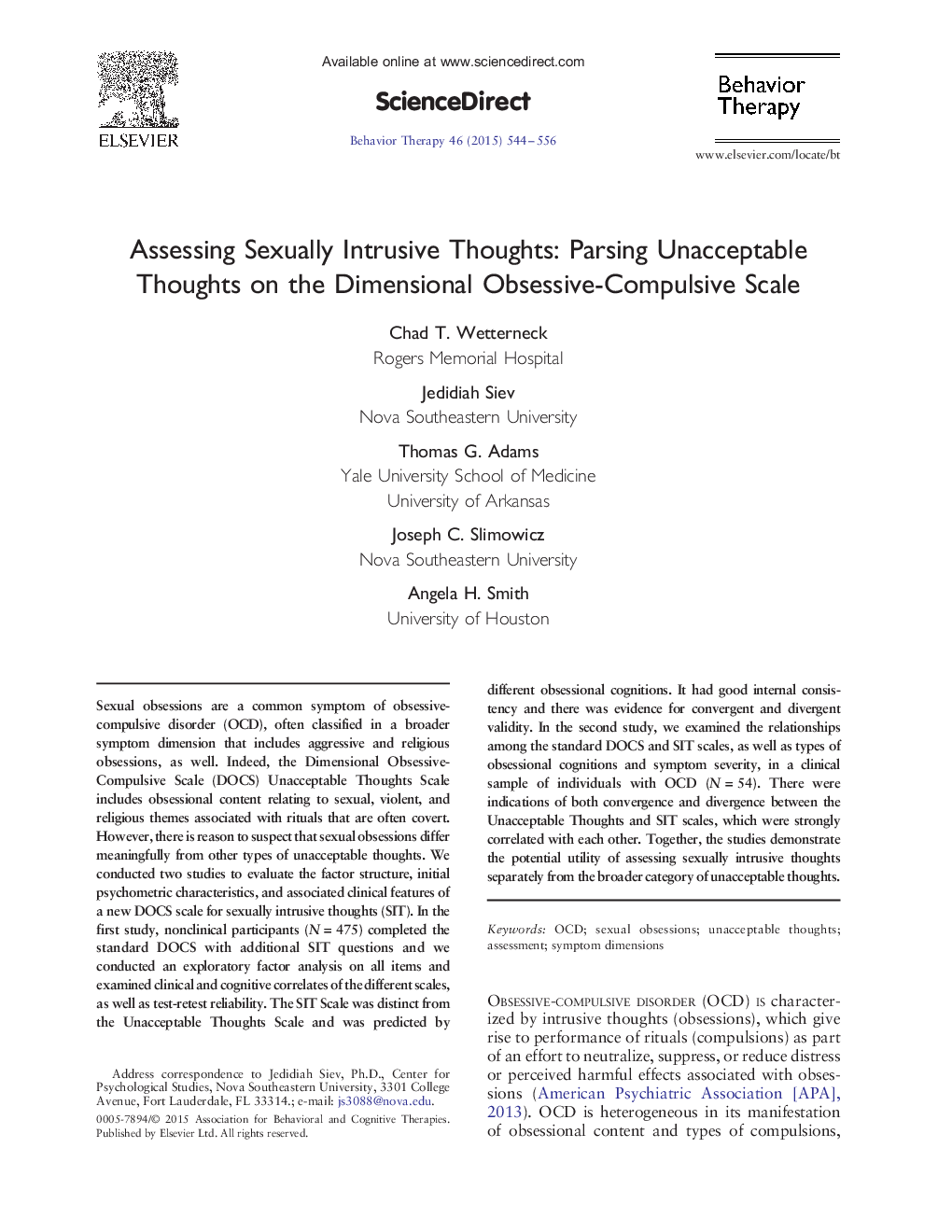| Article ID | Journal | Published Year | Pages | File Type |
|---|---|---|---|---|
| 901180 | Behavior Therapy | 2015 | 13 Pages |
•We evaluated a new scale to assess sexually intrusive thoughts.•We examined the scale in a large nonclinical sample and a smaller OCD sample.•Sexually intrusive thoughts were distinct from unacceptable thoughts.•There is utility in assessing sexually intrusive thoughts separately.
Sexual obsessions are a common symptom of obsessive-compulsive disorder (OCD), often classified in a broader symptom dimension that includes aggressive and religious obsessions, as well. Indeed, the Dimensional Obsessive-Compulsive Scale (DOCS) Unacceptable Thoughts Scale includes obsessional content relating to sexual, violent, and religious themes associated with rituals that are often covert. However, there is reason to suspect that sexual obsessions differ meaningfully from other types of unacceptable thoughts. We conducted two studies to evaluate the factor structure, initial psychometric characteristics, and associated clinical features of a new DOCS scale for sexually intrusive thoughts (SIT). In the first study, nonclinical participants (N = 475) completed the standard DOCS with additional SIT questions and we conducted an exploratory factor analysis on all items and examined clinical and cognitive correlates of the different scales, as well as test-retest reliability. The SIT Scale was distinct from the Unacceptable Thoughts Scale and was predicted by different obsessional cognitions. It had good internal consistency and there was evidence for convergent and divergent validity. In the second study, we examined the relationships among the standard DOCS and SIT scales, as well as types of obsessional cognitions and symptom severity, in a clinical sample of individuals with OCD (N = 54). There were indications of both convergence and divergence between the Unacceptable Thoughts and SIT scales, which were strongly correlated with each other. Together, the studies demonstrate the potential utility of assessing sexually intrusive thoughts separately from the broader category of unacceptable thoughts.
